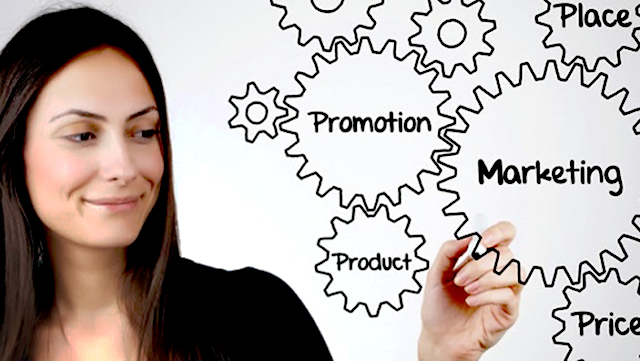What Do You Do When Your Professional Advocates are Wrong?
 Unfortunately in business people don’t always see eye-to-eye. What works for some professionals might not work for others. But what about an instance in which you don’t agree with your professional advocates? In many cases, those same people who refer you business could have a completely different idea of how to interact with clients or, perhaps even more frustrating, an entirely different take on industry-related best practices. This isn’t the end of the world (nor does it have to be the end of the advocate relationship), however it’s important to be aware of in instances in which you repeatedly share business.
Unfortunately in business people don’t always see eye-to-eye. What works for some professionals might not work for others. But what about an instance in which you don’t agree with your professional advocates? In many cases, those same people who refer you business could have a completely different idea of how to interact with clients or, perhaps even more frustrating, an entirely different take on industry-related best practices. This isn’t the end of the world (nor does it have to be the end of the advocate relationship), however it’s important to be aware of in instances in which you repeatedly share business.
A ClientWise advisor recently approached me with one such problem. He was given some trust and estates paperwork by a client, and noticed a lot of sloppiness on the part of the attorney—the very same attorney who’d referred him the client. While he wasn’t attempting to provide legal advice on the matter, he had enough insight, along with some pertinent information from his client, to make the connection that the lawyer might not have been acting in the best interest of the client. He was faced with the option of confronting the attorney and possibly risking the advocate relationship, or ignoring it and failing to do what was best for the client.
There are some preventative measures you can take to narrow the chances of this occurring, as well as some things you can do in the event that a disagreement occurs.
- Stick to your professional advocate process: The reason we place so much importance on process in center of influence relationships at ClientWise, is that creating a process gives you the opportunity to openly discuss expectations with your professional advocate partners. Not only will this provide clarity on the responsibilities in the relationship, and provide a path forward, it has the added benefit of potentially clearing up any points of disagreement between you and your professional advocates.
- Know where to draw the line: Your morals in your business are probably about as clear as day to you, as you’ve honed and considered them for as long as you’ve been in your career. But give some careful thought to what you find acceptable or not in your professional advocate relationships before outlining a process with them. Where are you willing to stretch your ideas and where are you steadfast? Knowing this going in will give you the confidence to proceed on your own terms.
- Set expectations for yourself in advance: While you can’t predict what problems may arise, know for yourself how you’d handle a situation like the one described above, or others you’ve seen come up whether they involve center of influence relationships or not. Set clear ground rules to follow, so as not to be persuaded by someone else’s vision of right or wrong in the moment. Have some clarity on the steps you will take in the event that a situation like this occurs.
- Understand the situation and its context: If you discover that your professional advocates might be taking a questionable approach with a mutual client, take some precautions to first understand why this is the case. Ensure that you aren’t following any potential assumptions of the client without the full story, or conversely that you aren’t relying solely on the judgment of your professional advocate at the detriment of the client.
- Consider whom to connect with first: While your loyalty should always lie with your client, in the event of an oversight by one of your centers of influence, it might be best to approach them first to hear their side of the story. If the information is sensitive enough that you can’t be specific, inform the professional advocate that you’d like to discuss the context of a matter in which you feel like you may not see eye-to-eye, in order to inform your plan moving forward. Acknowledge that there might be a difference of opinion, and that you’re just trying to do what’s best for the client.
- Be careful about approaching the client: Inform the client of the situation only if you can’t come to satisfactory terms with the center of influence first. In this case use your judgment and fiduciary responsibility to determine how much information is appropriate to share with the client. Remember that your goal is always to maintain the relationship in the interest of the client, but also be aware that you wouldn’t have the client if it weren’t for the influence of your professional advocate. This is a tricky situation because you have allegiance to both the client and the advocate. This is a good time to turn to the morals and expectations you’ve set for yourself when it comes to your center of influence relationships.
Your centers of influence and professional advocates are incredibly important to your business. Like your team members, they are also reflections of your business, so it’s crucial to never enter into these partnerships lightly. Understanding your role in your advocate relationships is a good first step to understanding your expectations of someone else. Do this both for your advocate relationships moving forward, and in considering those you currently hold.
Powerful coaching questions from this article:
- What parameters do you have in place for yourself with regard to your expectations of center of influence relationships?
- How have you handled disagreements with your advocates in the past and how has it impacted the relationship?
- How will creating these agreements both with yourself and with your advocates strengthen your advocate relationships moving forward?
Topics: Marketing & Communication


